外研版(2019)必修第一册Unit 5Into the wild Using language 课件(30张ppt)
文档属性
| 名称 | 外研版(2019)必修第一册Unit 5Into the wild Using language 课件(30张ppt) | 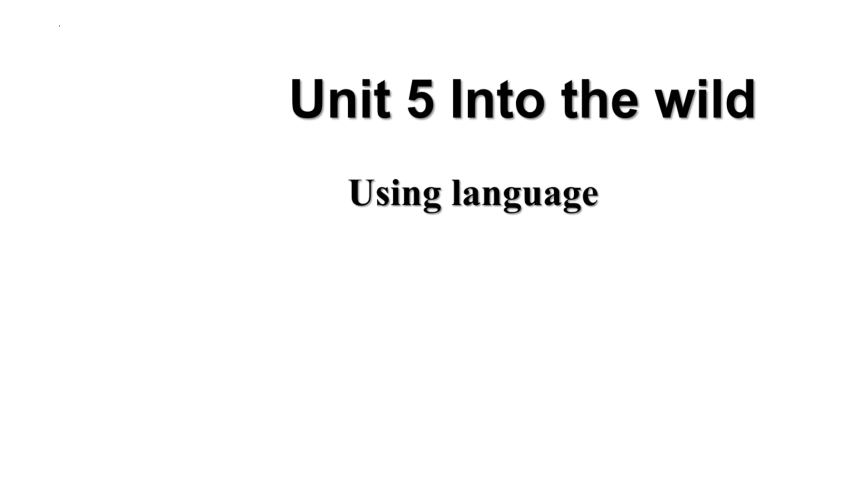 | |
| 格式 | zip | ||
| 文件大小 | 918.2KB | ||
| 资源类型 | 教案 | ||
| 版本资源 | 外研版(2019) | ||
| 科目 | 英语 | ||
| 更新时间 | 2022-07-04 23:02:53 | ||
图片预览

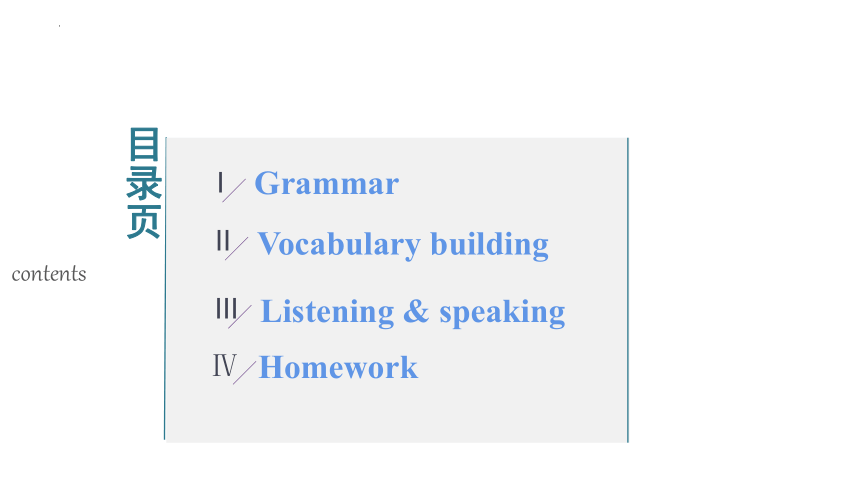
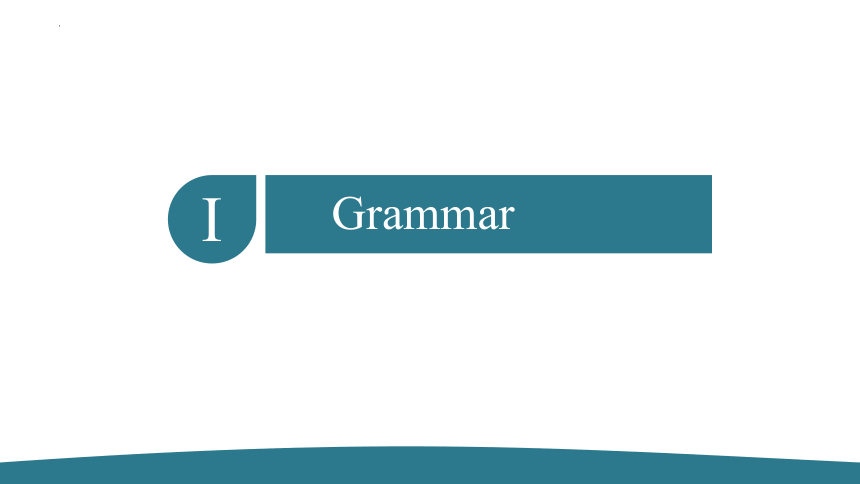
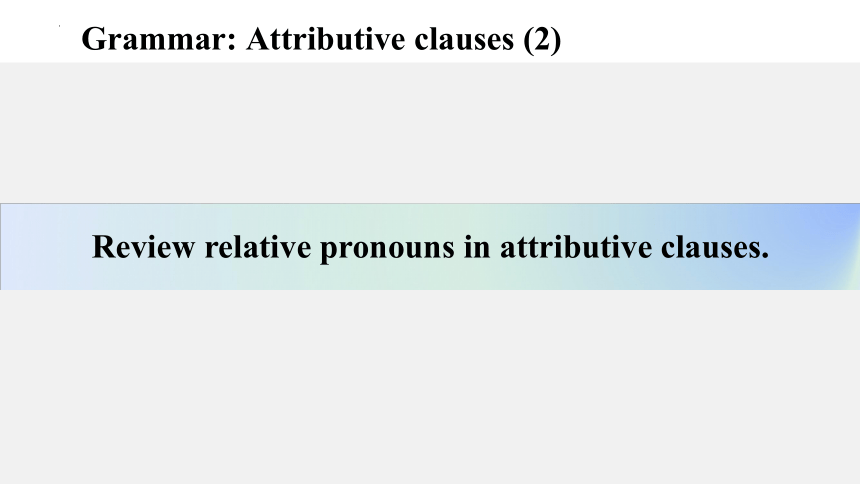
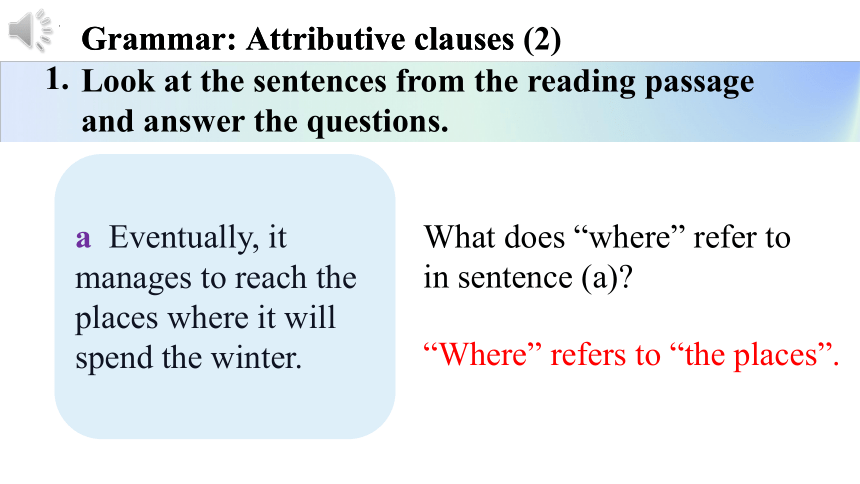
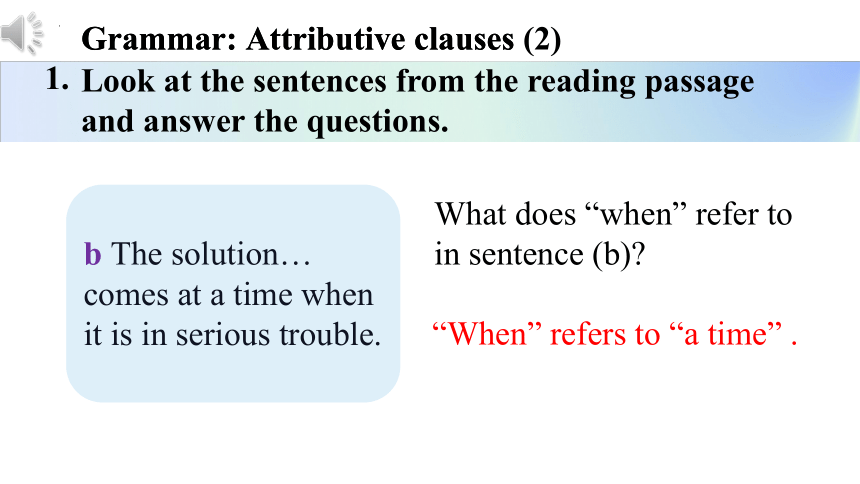
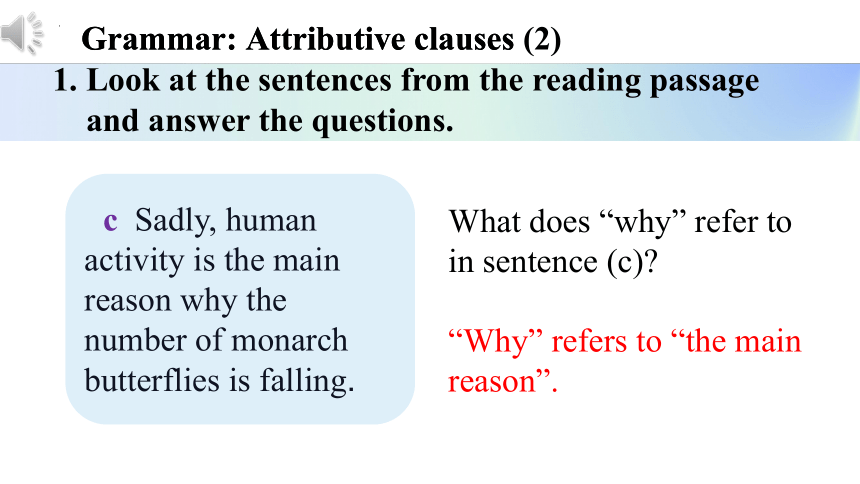
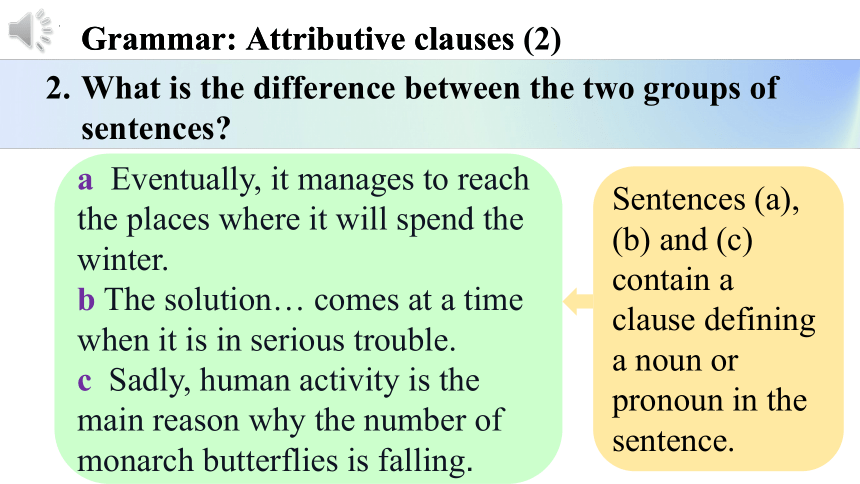
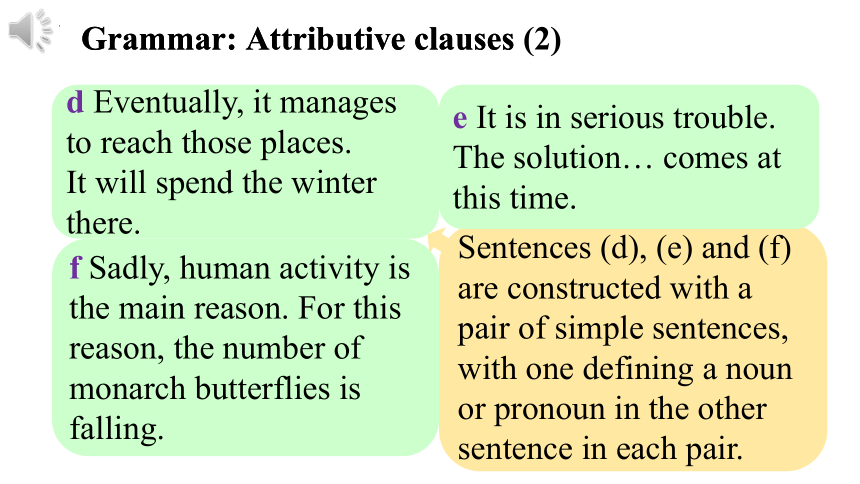
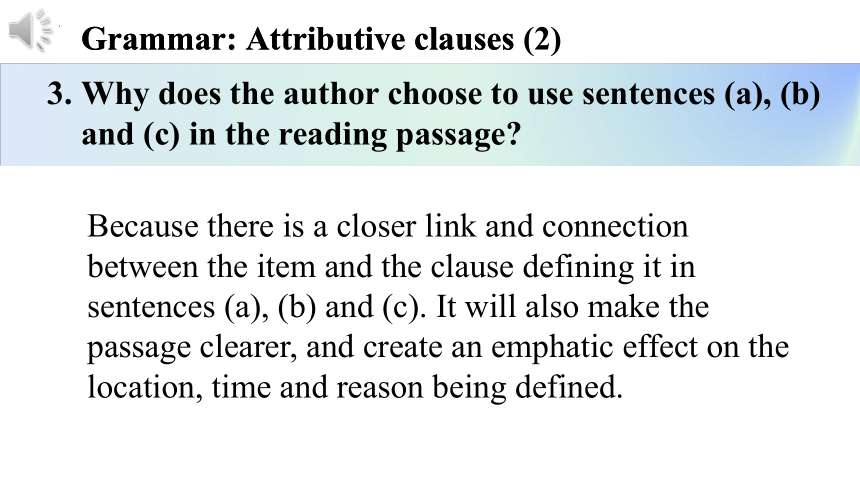
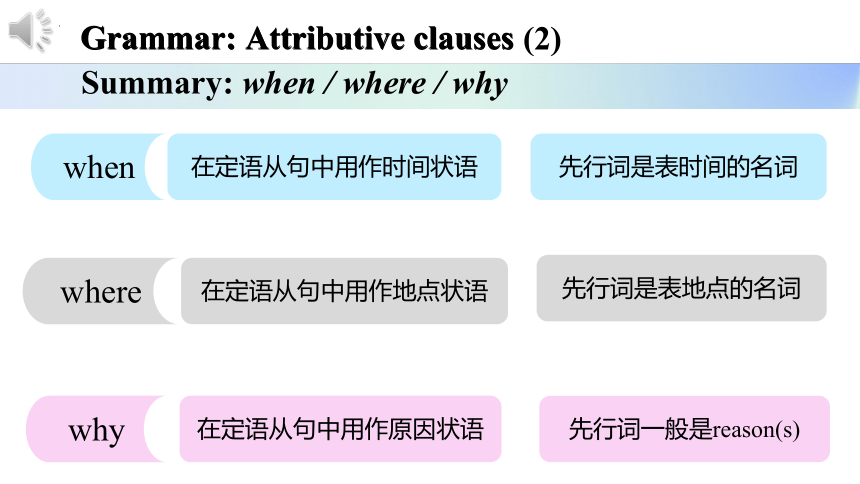
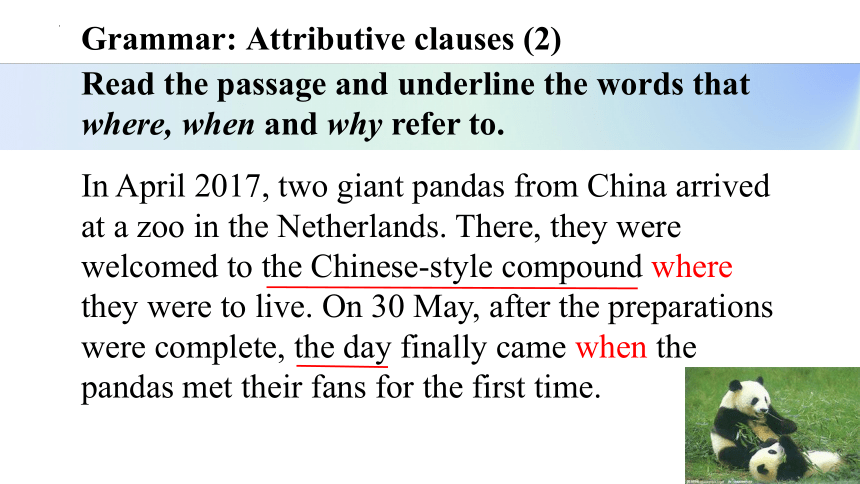
文档简介
(共30张PPT)
Using language
Unit 5 Into the wild
目录页
Grammar
I
Homework
Ⅳ
Vocabulary building
II
Listening & speaking
III
contents
Ⅰ
Grammar
that
指人
指物
主语
宾语
主语
宾语
whose
who
whom
which
指人的或物的
Grammar: Attributive clauses (2)
Review relative pronouns in attributive clauses.
Grammar: Attributive clauses
a Eventually, it manages to reach the places where it will spend the winter.
What does “where” refer to in sentence (a)
“Where” refers to “the places”.
Grammar: Attributive clauses (2)
Look at the sentences from the reading passage and answer the questions.
1.
Grammar: Attributive clauses
b The solution… comes at a time when it is in serious trouble.
What does “when” refer to in sentence (b)
“When” refers to “a time” .
Grammar: Attributive clauses (2)
Look at the sentences from the reading passage and answer the questions.
1.
Grammar: Attributive clauses
Look at the sentences from the reading passage and answer the questions.
c Sadly, human activity is the main reason why the number of monarch butterflies is falling.
What does “why” refer to in sentence (c)
“Why” refers to “the main reason”.
Grammar: Attributive clauses (2)
1.
Grammar: Attributive clauses
What is the difference between the two groups of sentences
a Eventually, it manages to reach the places where it will spend the winter.
b The solution… comes at a time when it is in serious trouble.
c Sadly, human activity is the main reason why the number of monarch butterflies is falling.
Sentences (a), (b) and (c) contain a clause defining a noun or pronoun in the sentence.
Grammar: Attributive clauses (2)
2.
Grammar: Attributive clauses
d Eventually, it manages to reach those places. It will spend the winter there.
Sentences (d), (e) and (f) are constructed with a pair of simple sentences, with one defining a noun or pronoun in the other sentence in each pair.
Grammar: Attributive clauses (2)
e It is in serious trouble. The solution… comes at this time.
f Sadly, human activity is the main reason. For this reason, the number of monarch butterflies is falling.
Grammar: Attributive clauses
Why does the author choose to use sentences (a), (b) and (c) in the reading passage
Because there is a closer link and connection between the item and the clause defining it in sentences (a), (b) and (c). It will also make the passage clearer, and create an emphatic effect on the location, time and reason being defined.
Grammar: Attributive clauses (2)
3.
Grammar: Attributive clauses
Summary: when / where / why
where
在定语从句中用作地点状语
先行词是表时间的名词
when
在定语从句中用作原因状语
在定语从句中用作时间状语
先行词是表地点的名词
先行词一般是reason(s)
why
Grammar: Attributive clauses (2)
In April 2017, two giant pandas from China arrived at a zoo in the Netherlands. There, they were welcomed to the Chinese-style compound where they were to live. On 30 May, after the preparations were complete, the day finally came when the pandas met their fans for the first time.
Grammar: Attributive clauses (2)
Read the passage and underline the words that where, when and why refer to.
People were excited – the zoo is the only place in the country where it is possible to see pandas. In fact, the last time there were pandas in the Netherlands was in 1987. And of course, the main reason why they were so excited is that pandas are just so cute!
Grammar: Attributive clauses (2)
Read the passage and underline the words that where, when and why refer to.
Hi Kay,
We’re having an amazing time here in South Africa. Our accommodation is perfect. It is in a location 1. ______ we can watch animals wandering past on their way to the waterhole. Sunset is the time of day 2. _______we sit on the balcony and count how many giraffes or antelopes we can see.
where
when
Grammar: Attributive clauses (2)
Complete the email with where, when or why.
I guess this is the reason 3. _________ this place is so popular. Next week, we are going to fly up to Zambia. That’s one of the countries 4. ________ you can visit the famous Victoria Falls.
See you soon.
David
why
where
Grammar: Attributive clauses (2)
Complete the email with where, when or why.
Ⅱ
Vocabulary building
Vocabulary building: Animal idioms
1. as busy as a(n) _______
2. kill two ________with one stone
3. When the cat’s away, the _______ will play.
4. hold your _______
5. It’s raining _______ and _______ .
bee
birds
mice
horses
cats
dogs
Look at the pictures and complete the idioms with animal names.
Vocabulary building: Animal idioms
English idioms are a way of adding colour to the language. For example, instead of saying “It’s raining heavily”, you could say “1. _____________________”. Another reason to use idioms is that they are concise. For example, to describe someone who is always working or busy doing something, we can say they are 2. ________________ .
It’s raining cats and dogs
as busy as a bee
concise [k n sa s] adj Something that is concise says everything
that is necessary without using any unnecessary words. 简洁的
例: Burton’s text is concise and informative.
Complete the paragraph with the animal idioms.
Vocabulary building: Animal idioms
If they’re rushing into something and should wait and be patient, you could say “3. ______________ ”. Learning idioms can be fun, especially when we compare them to Chinese equivalents. Take, for example, “4. _________________________________” (people do what they want and have fun when someone in authority is absent) and “5. ________________________ ” (solve two problems with one action) – are there corresponding idioms in Chinese
hold your horses
When the cat’ s away, the mice will play
kill two birds with one stone
equivalent [ kw v l nt] n If one amount or value is the equivalent
of another, they are the same. 等量物; 等价物
例:Mr. Li’s pay is the equivalent of about $80 a month.
corresponding [ k r sp nd ] adj 相应的
Complete the paragraph with the animal idioms.
Vocabulary building: Animal idioms
A: She’s as busy as a bee.
B: What makes you say that
Work in pairs. Find more animal idioms. Choose an idiom and describe a situation with it.
Work in pairs. Find more animal idioms. Choose an idiom and describe a situation with it.
III
Listening & speaking
Listening & speaking: Before listening
Dogs were first domesticated over 14,000 years ago. Sheep, cows and pigs have been kept at home as sources of food for around 7,000 years.
Listening & speaking: Before listening
The oldest zoo in the world is in Vienna, opened in 1752. The oldest zoo in China is Beijing Zoo, which was founded in 1906.
Listening & speaking: Before listening
Learning to learn
…….
……..
……..
In a debate, first listen out for the main topic. This is usually a statement or question at the very start of the debate. Speakers will state whether they are for or against the statement. Then, they will introduce their supporting arguments with expressions such as We must remember that… and We can’t deny that…
Listening & speaking: While-listening
1. Can zoo animals survive in the wild
2. Can zoos offer animals their natural environment
3. Should we keep wild animals in zoos
4. Should we educate people more about animals
Listen to the TV debate and choose the correct topic.
Listening & speaking: While-listening
Listen again and complete the mind map.
Zoos allow us to see and learn about animals in places similar to their 3. _____________________ .
Zoos are a good way to 2. _______________________ .
Zoos can help protect animals 1. __________________.
in danger of dying out
educate people about animals
natural environments
debate
for
Listening & speaking: While-listening
Listen again and complete the mind map.
Zoo animals can 4. _________________________ and be unable to live on their own when returned to the wild.
Zoos 6. _______________people than for animals.
Zoos cannot offer animals an environment that’s 5. _________their natural one.
depend too much on humans
as good as
do more good for
against
debate
Listening & speaking: Speaking
Student A: Turn to Page 83.
Student B: Turn to Page 86.
Work in pairs. Hold a debate on whether we should keep animals as pets.
Ⅳ
Homework
Homework
1. Review attributive clauses and do more exercises about them.
2. Memorize animal idioms.
3. Think of another topic that is related to animals and
hold a debate.
Using language
Unit 5 Into the wild
目录页
Grammar
I
Homework
Ⅳ
Vocabulary building
II
Listening & speaking
III
contents
Ⅰ
Grammar
that
指人
指物
主语
宾语
主语
宾语
whose
who
whom
which
指人的或物的
Grammar: Attributive clauses (2)
Review relative pronouns in attributive clauses.
Grammar: Attributive clauses
a Eventually, it manages to reach the places where it will spend the winter.
What does “where” refer to in sentence (a)
“Where” refers to “the places”.
Grammar: Attributive clauses (2)
Look at the sentences from the reading passage and answer the questions.
1.
Grammar: Attributive clauses
b The solution… comes at a time when it is in serious trouble.
What does “when” refer to in sentence (b)
“When” refers to “a time” .
Grammar: Attributive clauses (2)
Look at the sentences from the reading passage and answer the questions.
1.
Grammar: Attributive clauses
Look at the sentences from the reading passage and answer the questions.
c Sadly, human activity is the main reason why the number of monarch butterflies is falling.
What does “why” refer to in sentence (c)
“Why” refers to “the main reason”.
Grammar: Attributive clauses (2)
1.
Grammar: Attributive clauses
What is the difference between the two groups of sentences
a Eventually, it manages to reach the places where it will spend the winter.
b The solution… comes at a time when it is in serious trouble.
c Sadly, human activity is the main reason why the number of monarch butterflies is falling.
Sentences (a), (b) and (c) contain a clause defining a noun or pronoun in the sentence.
Grammar: Attributive clauses (2)
2.
Grammar: Attributive clauses
d Eventually, it manages to reach those places. It will spend the winter there.
Sentences (d), (e) and (f) are constructed with a pair of simple sentences, with one defining a noun or pronoun in the other sentence in each pair.
Grammar: Attributive clauses (2)
e It is in serious trouble. The solution… comes at this time.
f Sadly, human activity is the main reason. For this reason, the number of monarch butterflies is falling.
Grammar: Attributive clauses
Why does the author choose to use sentences (a), (b) and (c) in the reading passage
Because there is a closer link and connection between the item and the clause defining it in sentences (a), (b) and (c). It will also make the passage clearer, and create an emphatic effect on the location, time and reason being defined.
Grammar: Attributive clauses (2)
3.
Grammar: Attributive clauses
Summary: when / where / why
where
在定语从句中用作地点状语
先行词是表时间的名词
when
在定语从句中用作原因状语
在定语从句中用作时间状语
先行词是表地点的名词
先行词一般是reason(s)
why
Grammar: Attributive clauses (2)
In April 2017, two giant pandas from China arrived at a zoo in the Netherlands. There, they were welcomed to the Chinese-style compound where they were to live. On 30 May, after the preparations were complete, the day finally came when the pandas met their fans for the first time.
Grammar: Attributive clauses (2)
Read the passage and underline the words that where, when and why refer to.
People were excited – the zoo is the only place in the country where it is possible to see pandas. In fact, the last time there were pandas in the Netherlands was in 1987. And of course, the main reason why they were so excited is that pandas are just so cute!
Grammar: Attributive clauses (2)
Read the passage and underline the words that where, when and why refer to.
Hi Kay,
We’re having an amazing time here in South Africa. Our accommodation is perfect. It is in a location 1. ______ we can watch animals wandering past on their way to the waterhole. Sunset is the time of day 2. _______we sit on the balcony and count how many giraffes or antelopes we can see.
where
when
Grammar: Attributive clauses (2)
Complete the email with where, when or why.
I guess this is the reason 3. _________ this place is so popular. Next week, we are going to fly up to Zambia. That’s one of the countries 4. ________ you can visit the famous Victoria Falls.
See you soon.
David
why
where
Grammar: Attributive clauses (2)
Complete the email with where, when or why.
Ⅱ
Vocabulary building
Vocabulary building: Animal idioms
1. as busy as a(n) _______
2. kill two ________with one stone
3. When the cat’s away, the _______ will play.
4. hold your _______
5. It’s raining _______ and _______ .
bee
birds
mice
horses
cats
dogs
Look at the pictures and complete the idioms with animal names.
Vocabulary building: Animal idioms
English idioms are a way of adding colour to the language. For example, instead of saying “It’s raining heavily”, you could say “1. _____________________”. Another reason to use idioms is that they are concise. For example, to describe someone who is always working or busy doing something, we can say they are 2. ________________ .
It’s raining cats and dogs
as busy as a bee
concise [k n sa s] adj Something that is concise says everything
that is necessary without using any unnecessary words. 简洁的
例: Burton’s text is concise and informative.
Complete the paragraph with the animal idioms.
Vocabulary building: Animal idioms
If they’re rushing into something and should wait and be patient, you could say “3. ______________ ”. Learning idioms can be fun, especially when we compare them to Chinese equivalents. Take, for example, “4. _________________________________” (people do what they want and have fun when someone in authority is absent) and “5. ________________________ ” (solve two problems with one action) – are there corresponding idioms in Chinese
hold your horses
When the cat’ s away, the mice will play
kill two birds with one stone
equivalent [ kw v l nt] n If one amount or value is the equivalent
of another, they are the same. 等量物; 等价物
例:Mr. Li’s pay is the equivalent of about $80 a month.
corresponding [ k r sp nd ] adj 相应的
Complete the paragraph with the animal idioms.
Vocabulary building: Animal idioms
A: She’s as busy as a bee.
B: What makes you say that
Work in pairs. Find more animal idioms. Choose an idiom and describe a situation with it.
Work in pairs. Find more animal idioms. Choose an idiom and describe a situation with it.
III
Listening & speaking
Listening & speaking: Before listening
Dogs were first domesticated over 14,000 years ago. Sheep, cows and pigs have been kept at home as sources of food for around 7,000 years.
Listening & speaking: Before listening
The oldest zoo in the world is in Vienna, opened in 1752. The oldest zoo in China is Beijing Zoo, which was founded in 1906.
Listening & speaking: Before listening
Learning to learn
…….
……..
……..
In a debate, first listen out for the main topic. This is usually a statement or question at the very start of the debate. Speakers will state whether they are for or against the statement. Then, they will introduce their supporting arguments with expressions such as We must remember that… and We can’t deny that…
Listening & speaking: While-listening
1. Can zoo animals survive in the wild
2. Can zoos offer animals their natural environment
3. Should we keep wild animals in zoos
4. Should we educate people more about animals
Listen to the TV debate and choose the correct topic.
Listening & speaking: While-listening
Listen again and complete the mind map.
Zoos allow us to see and learn about animals in places similar to their 3. _____________________ .
Zoos are a good way to 2. _______________________ .
Zoos can help protect animals 1. __________________.
in danger of dying out
educate people about animals
natural environments
debate
for
Listening & speaking: While-listening
Listen again and complete the mind map.
Zoo animals can 4. _________________________ and be unable to live on their own when returned to the wild.
Zoos 6. _______________people than for animals.
Zoos cannot offer animals an environment that’s 5. _________their natural one.
depend too much on humans
as good as
do more good for
against
debate
Listening & speaking: Speaking
Student A: Turn to Page 83.
Student B: Turn to Page 86.
Work in pairs. Hold a debate on whether we should keep animals as pets.
Ⅳ
Homework
Homework
1. Review attributive clauses and do more exercises about them.
2. Memorize animal idioms.
3. Think of another topic that is related to animals and
hold a debate.
